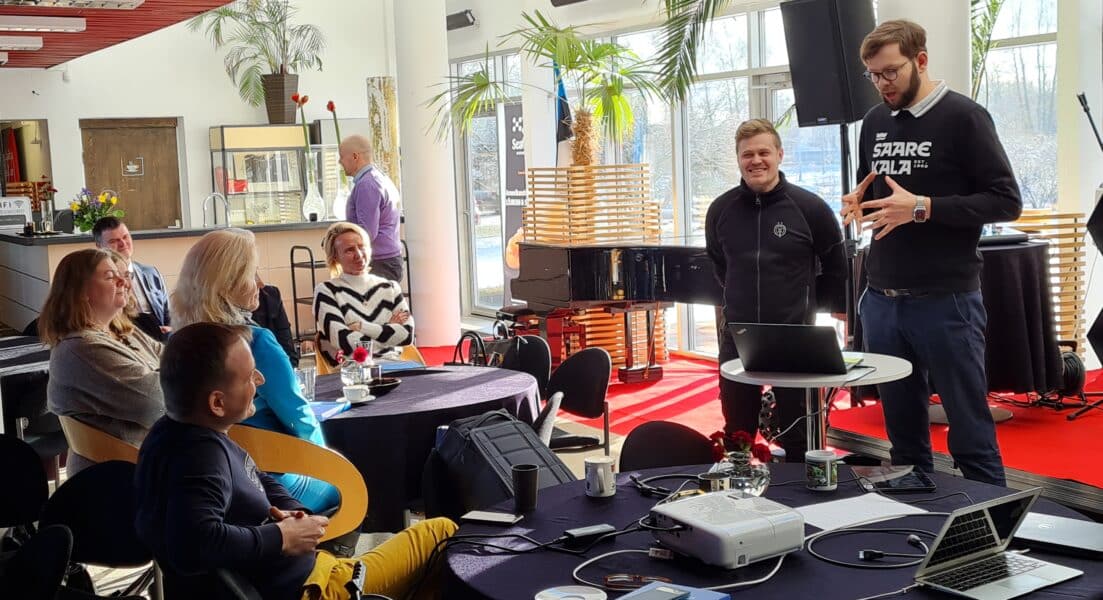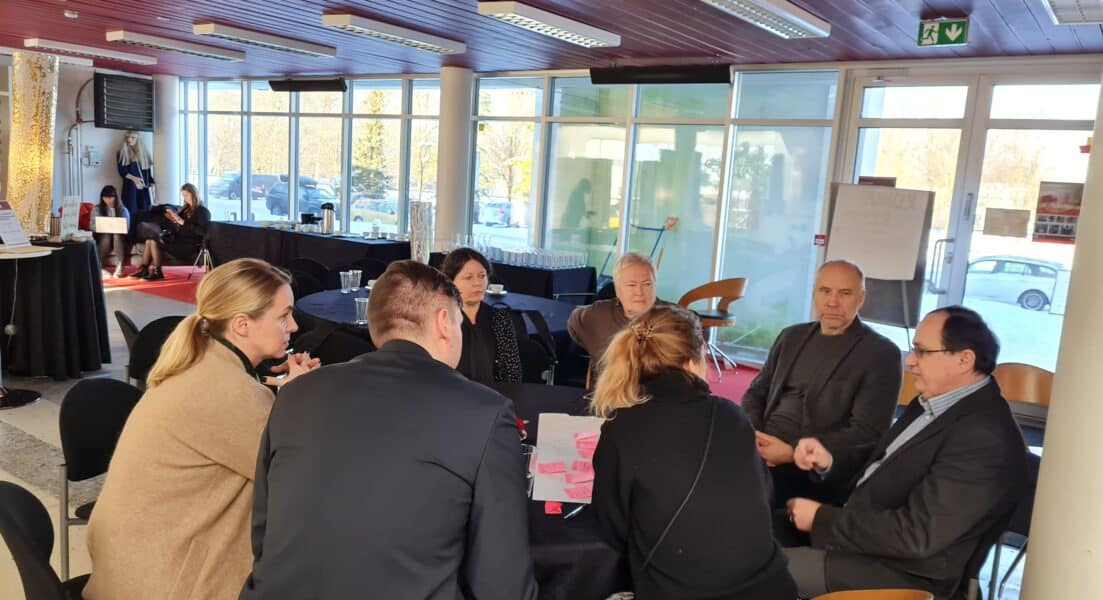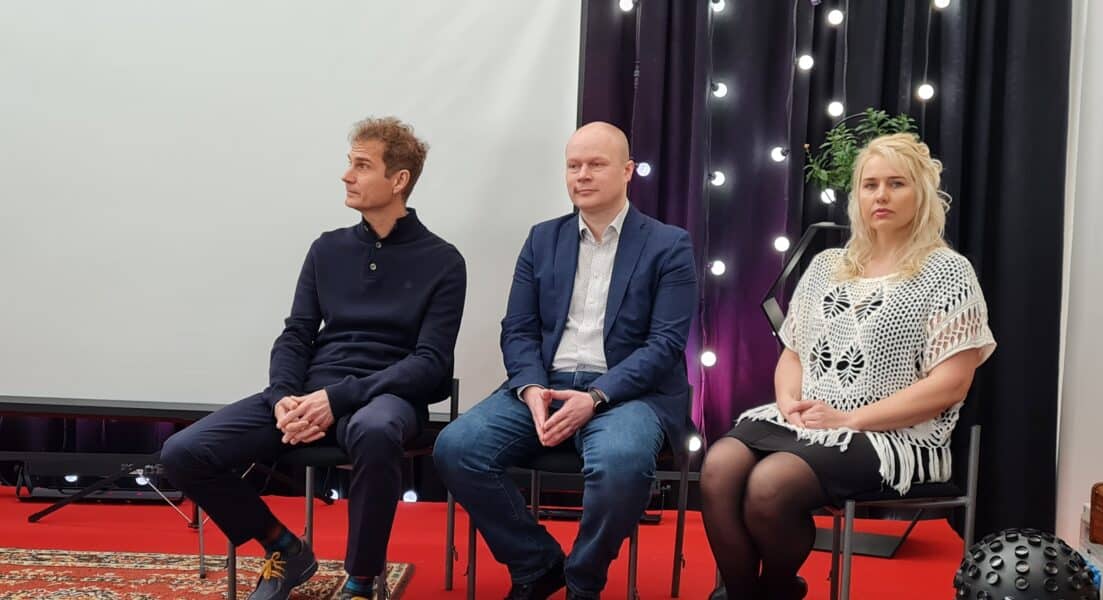Local stakeholders tackled blue bioeconomy challenges
Seminar “Blue bioeconomy in the Waters of Western Estonia” in Saaremaa pilot region.
The seminar was organized by the Estonian Maritime Institute of the University of Tartu, Taltech Kuressaare College and the Agricultural and Environmental Institute of the Estonian University of Life Sciences in cooperation with the Saaremaa Local Government, Saare Arenduskeskus, the Estonian Representation of the European Commission and the Tartu Biotechnology Park. The seminar took place within the BlueRev and BlueBioCluster projects that are Horizon Europe projects and funded by the European Union.
Saaremaa island in Western Estonia is one of the three pilot regions in BlueRev project. On February 3rd, 2023 a seminar was held in Kuressaare, Saaremaa with the aim to introduce the opportunities and challenges for valorization of blue bioresources in Saaremaa region, and to engage local stakeholders into the process of creating a vision for blue bioeconomy in the region.
The seminar combined presentations from local government on the blue bioeconomy in the region, enterprises sharing their experience, a panel discussion with representatives of three Estonian universities and a workshop with stakeholders on creating a future vision for blue bioeconomy in Saaremaa.
Participants agree that the blue bioeconomy is the key to the development of Saaremaa region as well as a field of study and interest that unites Estonia’s largest universities, local entrepreneurs and public sector parties. Three Estonian universities and their units: Estonian Maritime Institute of the University of Tartu, Taltech and its Kuressaare College and the Estonian University of Life Sciences, have a lot of specialized knowledge and know-how related to the blue bioeconomy, however, the potential of blue bioresources have been underutilized in the region. Agar and seaweed production, fish and mussel farming, biochemical, energy and coastal and food tourism provide opportunities that should be explored.
Local enterprises, including a furcellaran producer, fish trawler and processor, and fish and mussel farmer discussed their entrepreneurship journey, challenges and outlooks. The factors for their success have lied in sustainable use of resources and in the courage to test innovative technological and marketing solutions. In the panel discussion, the representatives from three universities discussed the future prospects of the blue bioeconomy in Saaremaa and the roles of various parties and their challenges. Several prospective fields have been underutilized as well as various national strategies should address the blue bioeconomy and the regional approach for Estonian bioresources in a more coherent manner.
The seminar included a workshop for the creation of a future vision for Blue Bioeconomy in Saaremaa. The workshop was based on a creation of group dialogue with local stakeholders and focused on three main discussions: where should blue bioeconomy in Saaremaa be in a ten-year perspective; what are the main obstacles and what are the potential solutions. The stakeholders mapped obstacles such as the lack of awareness of the blue bioeconomy as a concept in society, local infrastructure, the lack of a common vision for the blue bioeconomy, the lack of effective cooperation between the government, researchers and other stakeholders, limited ability to develop and bring niche products to export markets, etc. The main solutions were related to increased and improved cooperation and joint activities, improved planning processes and reduced environmental impacts, exploration of new business models, facilitation of shared values.







